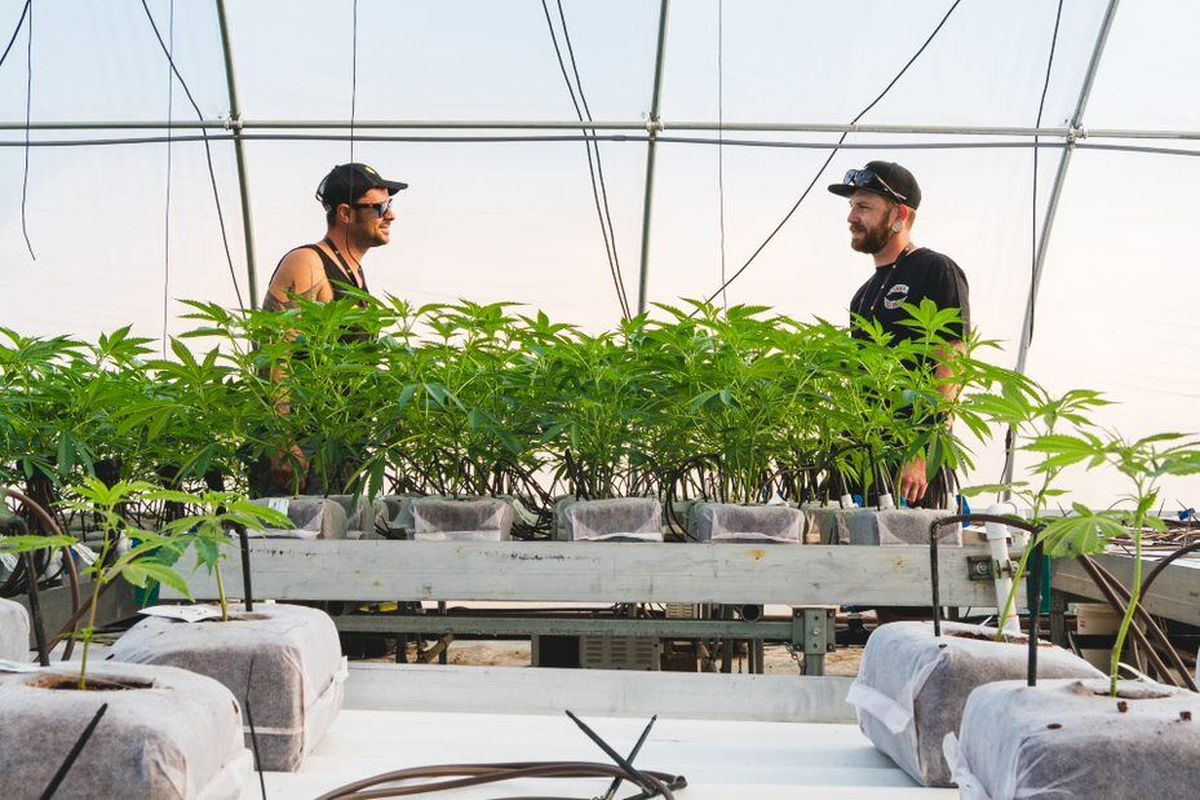Canna Organix quietly leads the evolution of Washington’s sun-grown cannabis

Canna Organix has built a business that leverages the best of a unique location.
Located in Sequim on the Olympic Peninsula, this cannabis grower, manufacturer and distributor launched in a quiet location the owners felt was the best for enjoying life and growing high-grade “sun-grown indoor products.”
Founder Tim Humiston began his cannabis journey as one of the first caregivers under I-692, Washington’s first medical marijuana initiative. Learning medical laws, limitations, and inconsistencies in patient-caregiver protection led Humiston to Mendocino, Calif., to pursue year-round greenhouse production.
It was here he met Wendy Bentley, Steve Olson, and Kyle Canty, and they all learned to grow cannabis on a larger scale, including production and processing, plus a lot of consultation with experts. Through constant experimentation, research and innovation, they developed processes and techniques, and in 2013, founded Canna Organix.
Canna Organix is in the heart of the Olympic Rain Shadow, a region with a unique microclimate that receives only 16 inches of rain a year and 250 days of sunshine. The Sequim region is only 15 miles in diameter and the only desert in Western Washington, creating an ideal climate for producing cannabis naturally without chemical pesticides.
Canna Organix has become an important part of the rural community, including providing 40 living wage jobs.
“We have talented and enthusiastic people that work for us,” said Wendy Bentley, who serves as business manager. “We pursue quality over quantity, people over profit, and strive for sustainable practices and innovative systems. We believe true success and happiness is lived and breathed. Our employees are a bunch of kick-ass enthusiasts excited about life and passionate about their performance.”
Bentley deserves much of the credit for developing the supportive and collaborative culture. She strives to make it a comfortable place, providing nutritious meals for employees and focusing on interacting on a real human level.
Canna Organix has two brands and 40 products, including flower, all-bud joints, cannabinoid isolates, extracts, and vape cartridges. Canna Organix is its higher-end product line, and Canna Whupass is the value-based brand.
Canna Organix only uses live soil that contains living microcosms such as bacteria, fungi, protozoa, nematodes, arthropods, and earthworms to break down organic matter to naturally make nutrients available for plant roots. The plants are mindfully cared for; each bud is individually hand-trimmed for minimal trichome loss, and hand-watered with natural fresh spring water.
No chemical products are used, almost all packaging is recyclable, pre-rolls are packed in RAW natural unrefined rolling papers, and almost everything that comes into the building is recycled, including recyclable containers, and biodegradable gloves.
“Cuttings start in coco bricks before being transferred to a living soil medium in 20-gallon pots for flowering and we hand-water everything,” explained Kyle Canty, who oversees a team of eight cultivators. “Each pot gets individual attention, and we love it till its end.”
While not the most cost-effective process, this personal approach is part of the team’s goal of “letting the plant express naturally,” which the team says yields healthier crops with higher terpene contents.
Today, three greenhouses and seven hoop house structures stand on the 3-acre property. Each greenhouse also houses three smaller hoop houses and a state-of-the-art lighting/heating system.
Humiston developed custom greenhouse controllers using Raspberry Pi single-board computers. This custom controller operates on a predictive system that collects and computes data from inside and outside the covered structures to provide an optimal environment.
“The controller works in concert with a heating system to control humidity in a novel way that reduces costs,” Humiston clarified. “This allows us to dark out the environment and manipulate the photo-period so that we can flower plants year-round.”
He also has modified furnaces and ductwork under the greenhouses. The heat moves through the ductwork and vents under the canopy, providing warm air from below the plants and up through the canopy which also whisks away moisture and mold. At a certain point, the fans kick in, and the now-moist air is flushed outside, while being constantly replaced from below.
The spaces between the greenhouses are packed with outdoor-grown cannabis to max out the company’s licensed canopy allowance. This provides approximately 25 greenhouse harvests per year with an additional large outdoor/fully sun-grown harvest annually.
The smokable flower from these custom greenhouses has unique features. Canna Organix prides itself on its genetic library, with strains such as Wedding Cake, Zkittlez, Gelato 41 and Do-Si-Dos. The team prefers cultivars with fruity terpenes and has begun a breeding program – Cannagenex – to develop new flavors.
“Genetics are where we’re setting ourselves apart from other grows,” Humiston said. The team started the breeding program by recreating popular genetics by crossing those cultivars’ parents together, often the only option to get those genetics into the state’s legal program due to the federal ban on shipping across state lines.
Now that Canna Organix has established a reputation for high-terpene varieties, the team is rolling out new creations. Some were introduced this year with great success.
Prior to the coronavirus pandemic, Steve Olson, the company’s head of marketing and customer relations, would visit retail partners and hold vendor days at each location, where he could interact and educate consumers directly.
These days, marketing efforts have been focused on social media. The company starts teasing new genetics before they hit the market, and has developed what it calls “strain stickers,” individual logos for each cultivar that creates a recognizable image that customers can associate with the product.
“There are thousands of ways to grow marijuana,” said Kerry Bennett, Canna Organix’s president. “We’ve chosen our location, grow style and innovative processes to bring cannabis and cannabis products to market that we ourselves want to consume.”